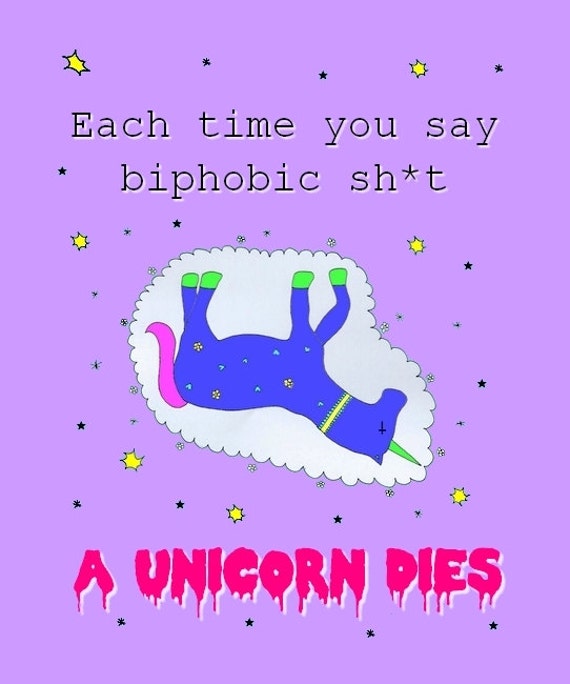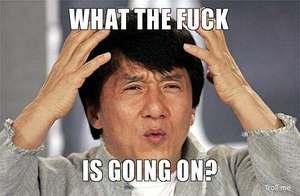In a small, secret part of my mind I’ve always wanted to be an advice columnist. I mean, don’t we all? In the absence of any actual people asking me actual advice, I’m going to take the next best thing. That’s right! It’s time to respond to the search terms.
1. How to not be a douchecanoe
I find that it helps to take a mental step aside from my own perspective to try to see a situation from someone else’s point of view. Don’t assume everything’s about you. Be considerate and kind and understand that people don’t owe you more than consideration and kindness in return. Be clear about your own boundaries and gracious about the boundaries of others.
If you’re having a specifically pronoun-related attack of asshattery, try my detailed advice. For simply being more excellent all-round, spend a few days reading through Captain Awkward. Pay close attention to the comments.
2. blackface.com
Please refer to question one. Repeat frequently until you understand the reasons why it is truly terrible. Then promise to do better next time.
3. ah women unicorn bisexual

You wouldn’t want to hurt the unicorn, would you? Would you?
But seriously: if by ‘unicorn’ you mean ‘a hot bi babe who will sex up me and my girlfriend/boyfriend’, then I’d recommend starting with a couple of understandings:
- The amount of ‘unicorns’ in the world is far outweighed by the amount of m/f couples who are looking for them. You gotta impress, y’know?
- Despite the name, they are people. Not mythical creatures. People with feelings and desires and boundaries all of their own, which are going to be every bit as important as yours are.
- The world doesn’t owe you a unicorn.
With these 3 facts, you’re now better informed than 99% of people out there looking for unicorns! Go forth and be lovely and have fun!
was jesus a vampire
Yes. Duh.
did vampire drink jesus blood
Probably.
was marie fleming afraid of death
Oh, I hope not. As far as I know, though, she was far more afraid of a long and painful end then death itself. According to her partner, her dearest wish was to die peacefully in her own home. She got that wish, at least, and I hope that she was loved and not afraid. What more can any of us hope for?
feminists shame men by calling them homosexual
Who are these ‘feminists’? Because they’re asshats of the highest degree and homophobes to boot, and I would like to have a word with them. Several words.
i am a lesbian dating a man
I hope you are very happy! A present for you: check out Erika Moen’s DAR. I just read it this week on the recommendation of my housemate. It’s a lovely comic about a woman who is, among other things, someone who identified as a lesbian until she met her husband. It’s super cute and full of <3
what sauce is chicken wings cooked in in ireland
Potato. Just potato.
need people to talk to about being closet
Oh, honey. The closet is a scary place to be, isn’t it? I don’t know where you are or what you’re in the closet as, so I can’t offer specific advice- although do try googling your location and LGBT, if you feel brave enough. There might be an LGBTQ switchboard or community centre who you can talk to in person?
If not.. well, there’s the internet, and there are plenty of supports and advice online.
If I could only give you one piece of advice? It would be to care for yourself. Being in the closet is scary. So is coming out and being out. Both of these are things you can do from a place of harming yourself or a place of caring for yourself. Ask yourself- is being in the closet stifling who I am as a human? Is it keeping me from flourishing and feeling connected to others? But also ask yourself- Would coming out be safe for me? How can I protect myself through that process?
If you do decide to come out, think carefully about who to talk to first. That first coming out? It’s going to be the most vulnerable moment of all. If things go well, then for every moment after that you’ll have at least one person who’s on your side and who’s got your back. Do you know someone who you think is supportive of LGBTQ people? Better still, is there anyone you know who is already out? Are any of these people who you think could be trusted, both to keep your confidence as long as you need it, and to be kind to you through the process?
It’s okay if you find people online first. It’s okay to take your time. It’s okay to come out to only some people, to one or two, or to everyone. Remember: care for yourself.
do you put cumin on vegetables
I sure do! One of my favourite comfort foods is potato wedges made by chopping up some spuds (skin ‘n’ all, natch) and then roasting them with loads of cumin, garlic, salt, pepper, and paprika. Then I nom them up with BBQ sauce mixed with mayo. Yum!
lesbians in my soup
Oh dear. Are they burnt? You probably want to take them out and cool them down. Maybe a nice cold shower? Unless they’re in gazpacho, in which case a nice hot bath would be in order.
Also, how did they get there?

why dont gay men date lesbians
Why don’t gay men date lesbians. Why don’t gay men date lesbians? Why don’t gay men date lesbians?



p.s. Yes some gay men are dating lesbians I am sure because sexuality isn’t always black and white and people find love in all sorts of unexpected places and I hope that they are all very happy indeed.
But still.
Related articles
- Advice – Take It or Leave It (theeternaltraveller.wordpress.com)
- Alice Arnold’s advice on coming out of the closet (standard.co.uk)


